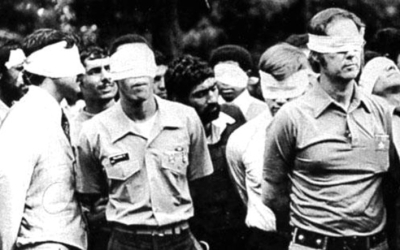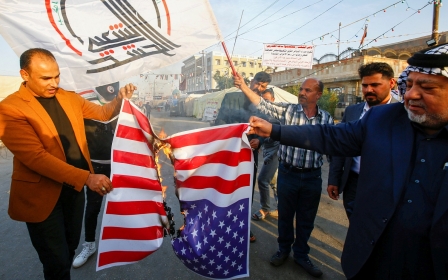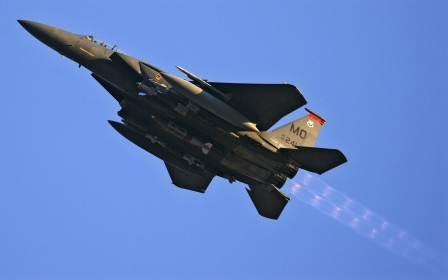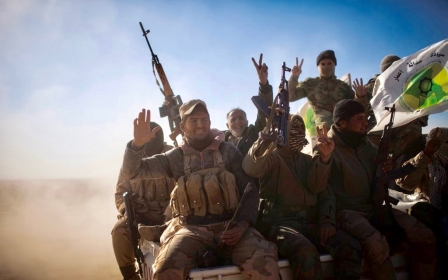Iraq protesters attack US embassy over air strikes
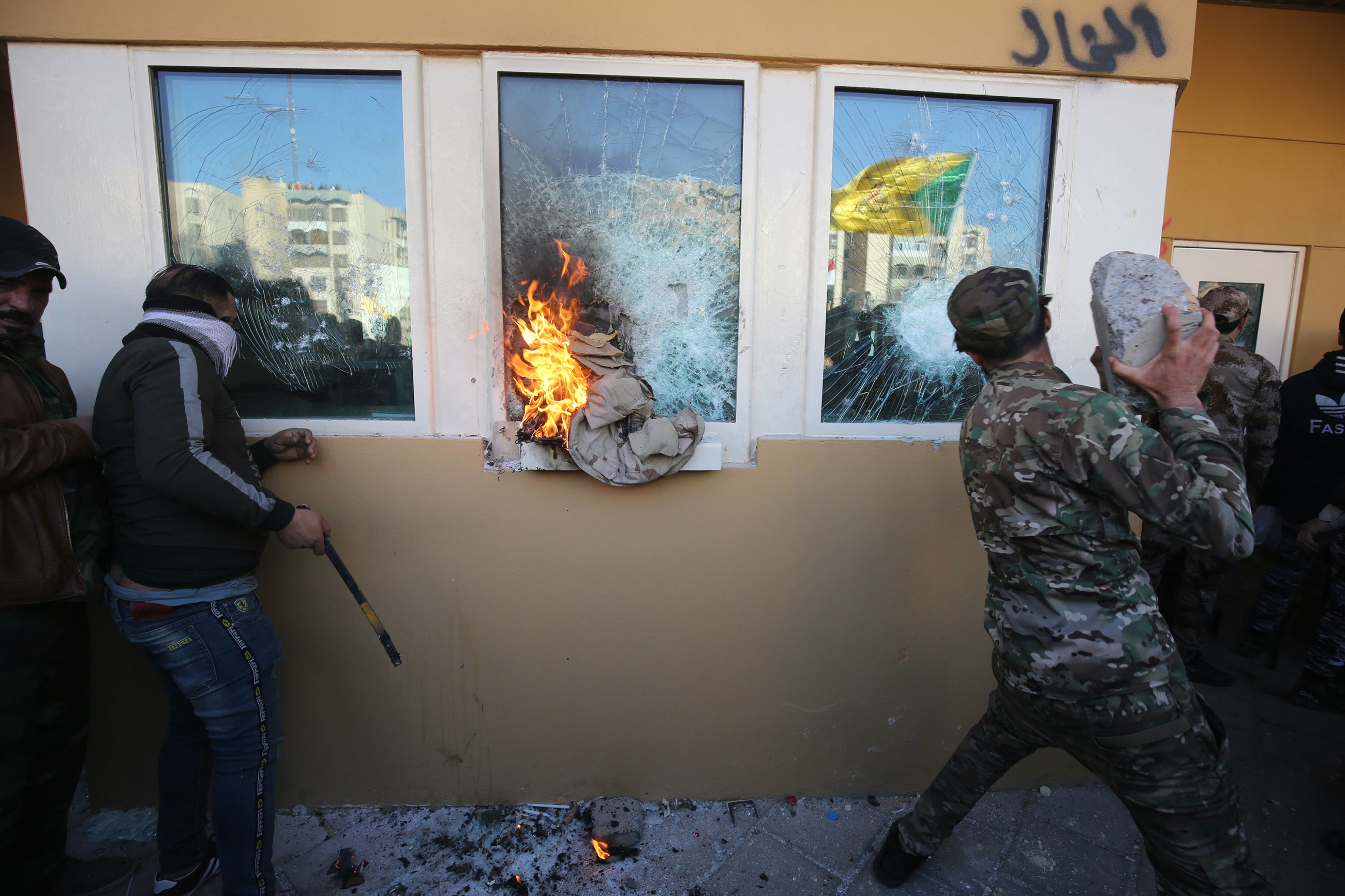
Thousands of protesters attacked the US embassy in the Iraqi capital on Tuesday in anger at American air strikes in Iraq and Syria that killed more than two dozen Iran-backed militia fighters at the weekend.
The demonstrators marched through checkpoints that usually restrict access to Baghdad's high-security Green Zone, chanting "Death to America", burning US flags and holding posters calling for the embassy to be shut down.
The protesters and militia stormed and burnt a security kiosk at the entrance to the embassy, but did not breach the main compound as security forces and embassy guards fired tear gas and stun grenades, Reuters witnesses said.
Twelve militia members were wounded by tear gas and stun grenades, according to medical sources.
Blood could be seen on the face of one militia member and on the stomach of another as their colleagues carried them away from the scene, a witness said.
US forces carried out air strikes on Sunday against the Kataib Hezbollah (KH) militia. This was in response to the killing of an American civilian contractor in a rocket attack on an Iraqi military base in Kirkuk on Friday.
US Defence Secretary Mark Esper announced that the Pentagon was deploying extra troops to Baghdad for embassy security.
"We have taken appropriate force protection actions to ensure the safety of American citizens, military personnel and diplomats in country, and to ensure our right of self-defence," Esper said in a statement on Tuesday.
He added that the Iraqi government should adhere to "its international responsibilities" in helping protect the diplomats it is hosting.
US Central Command, a US military task force in the Middle East, also confirmed that additional American troops are being sent to Iraq to protect the embassy in Baghdad.
For his part, Donald Trump said that Iran was "orchestrating" the attack and would be held responsible for it.
"Iran killed an American contractor, wounding many. We strongly responded, and always will," the US president wrote on Twitter.
"Now Iran is orchestrating an attack on the US Embassy in Iraq. They will be held fully responsible. In addition, we expect Iraq to use its forces to protect the Embassy, and so notified."
Following Trump's tweet, Iran's Foreign Ministry denied Tehran was behind the violent protests around the US embassy.
"America has the surprising audacity of attributing to Iran the protests of the Iraqi people against [Washington's] savage killing of at least 25 Iraqis," Abbas Mousavi, a ministry spokesman, said in a statement on the foreign ministry's website.
'No, no, Trump!'
The US air strikes risk drawing Iraq further into a proxy conflict between the US and Iran at a time when Baghdad is being rocked by mass protests against the political system.
Some protesters threw stones at the gate of the embassy while others chanted, "No, no, America! ... No, no, Trump!"
Iraqi special forces were deployed around the main gate to prevent them from entering the embassy.
Qais al-Khazali, leader of the Iranian-backed Asaib Ahl al-Haq militia, and other senior militia leaders, were seen among the protesters.
KH flags were hung on the fence surrounding the building.
Iraqis are taking to the streets in their thousands almost daily to condemn, among other things, militias such as KH and their Iranian patrons that support Abdul Mahdi's government.
Abdul Mahdi condemned the strikes, which killed at least 25 fighters and wounded 55.
Phone call with Pompeo
Iraq's caretaker premier Adel Abdul Mahdi said that the protesters at the embassy should leave the compound "immediately".
"We recall that any aggression or harassment of foreign embassies will be firmly prohibited by the security forces," Abdul Mahdi's office said several hours after the attack began.
Abdul Mahdi and Iraq President Barham Salih also guaranteed the safety of US personnel and property in a telephone call with US Secretary of State Mike Pompeo, the State Department said, following the attack.
Pompeo spoke with the two men separately from his office in Washington.
"The secretary made clear the United States will protect and defend its people, who are there to support a sovereign and independent Iraq," State Department spokeswoman Morgan Ortagus said in a statement.
"Both Abdul Mahdi and Salih assured the Secretary that they took seriously their responsibility for and would guarantee the safety and security of US personnel and property."
After initial reports that embassy staff had been evacuated, US officials said later on Tuesday that American personnel are safe inside the building.
"US personnel are secure and there has been no breach. There are no plans to evacuate Embassy Baghdad," a State Department spokesperson told Reuters.
The spokesperson added that the US ambassador to Iraq Matt Tueller will return to Baghdad after concluding a previously scheduled personal trip.
Middle East Eye delivers independent and unrivalled coverage and analysis of the Middle East, North Africa and beyond. To learn more about republishing this content and the associated fees, please fill out this form. More about MEE can be found here.


